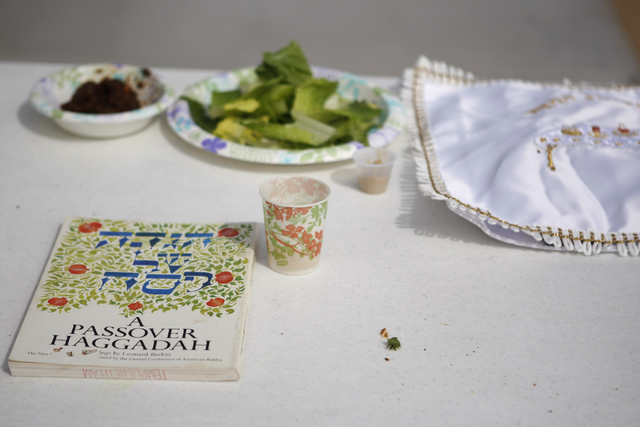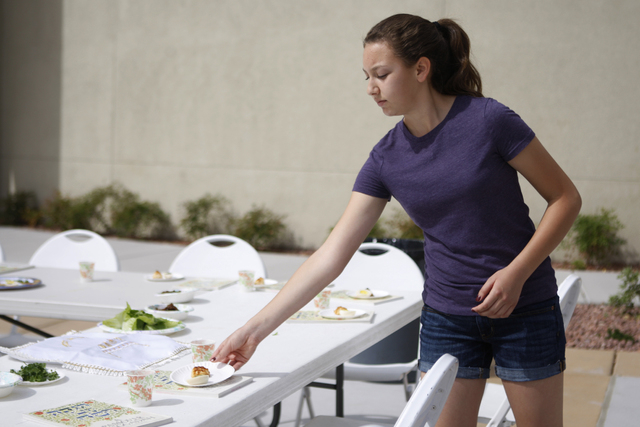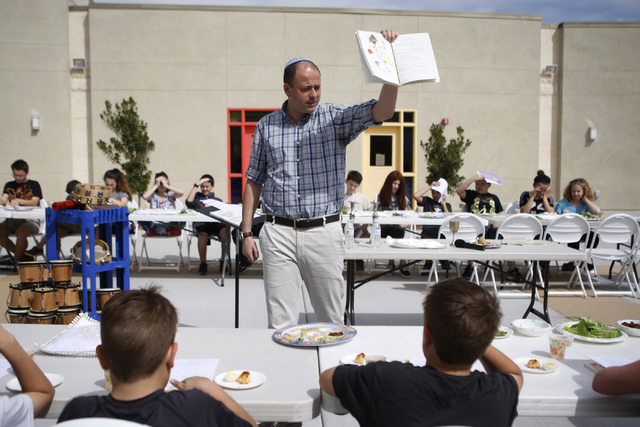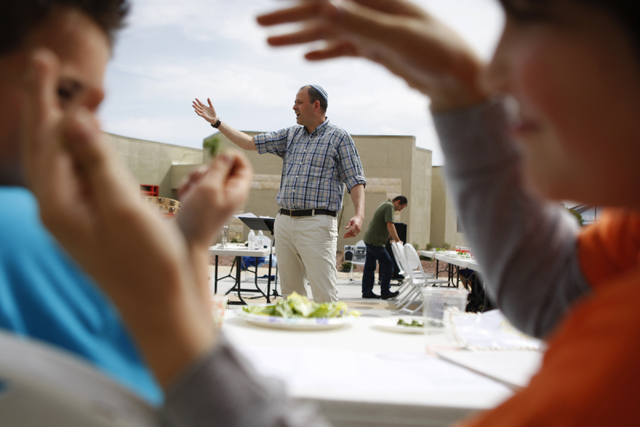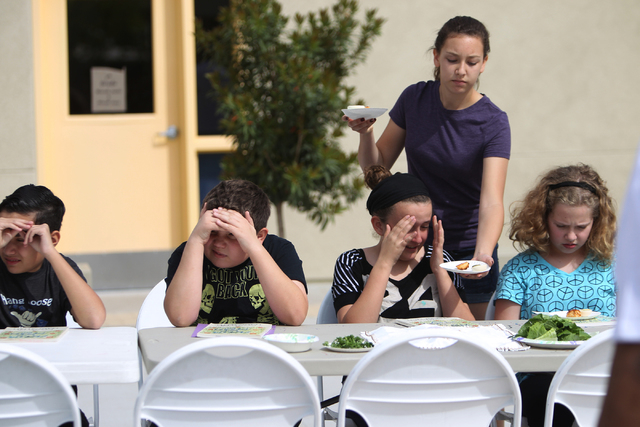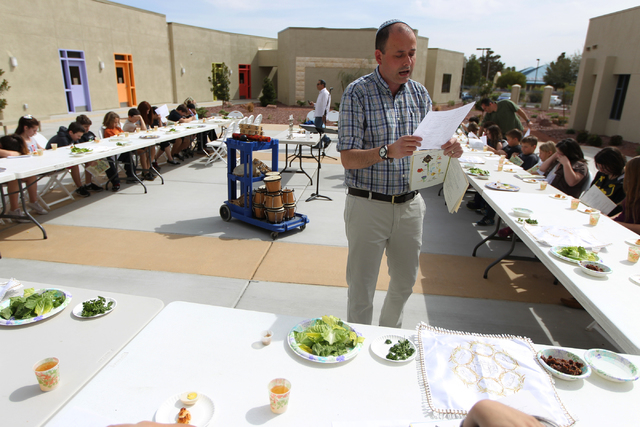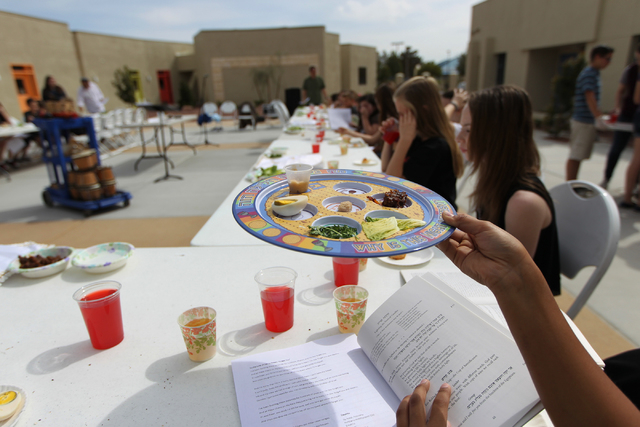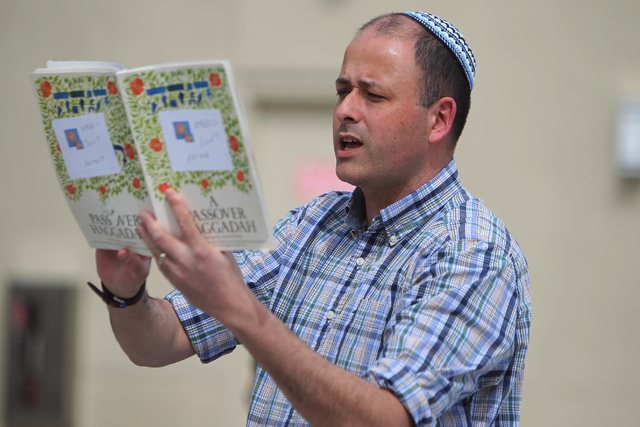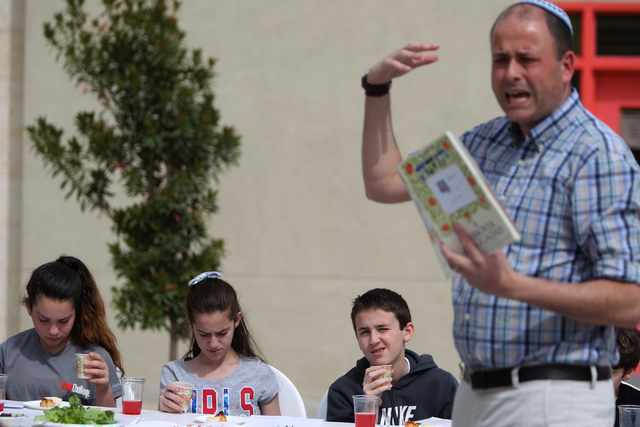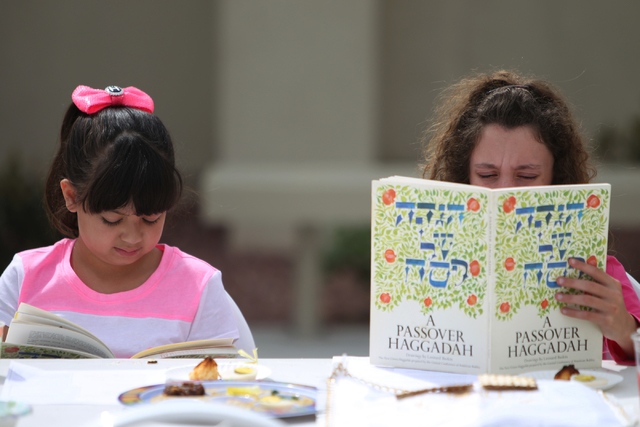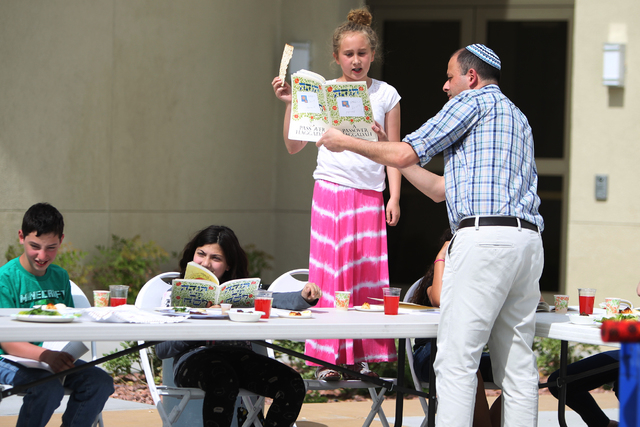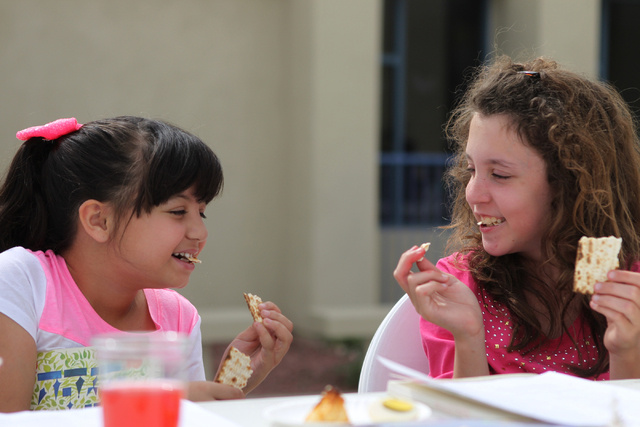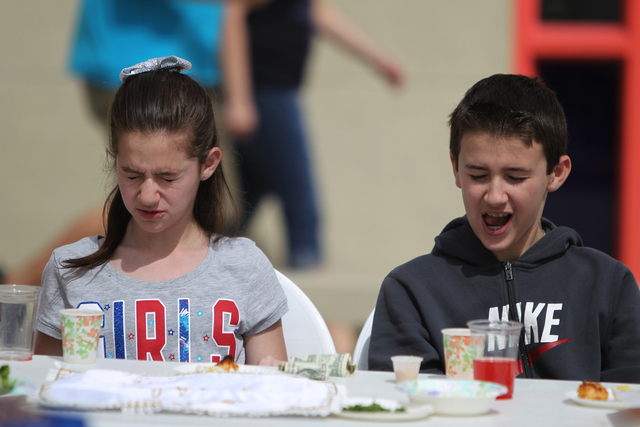Rabbis offer tips for drawing teens into Passover Seder
As the Jewish calendar moves toward Passover celebrations, Las Vegas Valley rabbis are sharing the parenting secret that has endured for generations. It’s more than a desire to get your teens to Passover Seder; it’s an obligation of parenting.
Forget guilt, long the staple of Borscht Belt comedians (and some who’ve worked the Strip). Instead, look to the food, or more precisely, the art of the family dinner. And having the rabbi on speed-dial isn’t a bad strategy either.
Passover starts this year Friday evening. The Passover Seder is a holiday dinner commemorating the Israelites’ liberation and exodus from Egypt, where they were slaves.
For Rabbi Felipe Goodman of Temple Beth Sholom, “There is no carrot-and-stick to encourage someone to attend Passover Seder. Its meaning is a part of Jewish identity that happens all through the year and through all of Jewish life to get them to this point. It doesn’t happen in a vacuum.”
One way to pique young people’s interest is to invite them to be full-fledged participants in retelling the story, Rabbi Malcolm Cohen of Temple Sinai Las Vegas suggests.
“The really great story of Passover is all about freedom,” he says. “A Seder plate has different symbols. Have the teens make up new symbols to fit the 21st century. Ask them ways they feel free and ways they feel oppressed. Talk about freedoms they are granted as they mature. The Passover story is still the same tale of freedom, but with stories that reflect the times … segregation, freedom fighters, human trafficking, feminism, LGBTQ. … It’s about stories and causes, essential elements. It’s the same but with a tweak. If you want to keep young people involved, you have to engage them. Give the young compelling reasons … not being beaten down with guilt.”
We all know teens can be blase or rebellious. But if there is a secret sauce to raising less rebellious kids, Rabbi Yitzchak Wyne of Young Israel Aish of Las Vegas, may have the recipe. He says teens engaged in Jewish school and in a synagogue-based family have a personal relationship with their rabbi. They are told how important it is to respect parents and grandparents and that gratitude is the secret of happiness.
“God wants us to be happy, to get the most out of life. If the parents are happy and show it and speak about it, the children see it,” he says. “Rebelliousness comes if kids see the parents are unhappy and if the kids aren’t exposed to Jewish values.”
Wyne says there are two types of families in his congregation. “The first is both-feet-in, enrolled in Torah study and community involvement, and finding out what it is to be Jewish. The second type is Jewish because their mother is Jewish. Their bar or bat mitzvah (coming of age ceremony) gives them more difficulty. For them, Passover Seder is not much more important than any other dinner.”
Cohen finds “some kids are not sure they believe in God or believe in the prayers they say. I let them know they can say anything, ask any question, and I won’t ask of them anything they won’t do. We make their bar mitzvah personalized. One boy played his violin as part of his service, while another who was interested in science made a discussion of science a part of his. There’s no magic. Make it personal and pragmatic. Teach the youth group about empowerment. Have an event not at temple but at a nightclub. Bring it to them. Building a personal relationship one-on-one with their rabbi is what counts.”
Wyne agrees that people’s relationship with their rabbi is of prime importance. “The biggest mistake people make is to wait for a rabbi to find them. Reach out to find a rabbi. Talmudic teaching says a person must find a rabbi. Each rabbi has a rabbi, too. It really is a personal relationship. He should know your first name and your dog’s name. That’s what it is to be Jewish.”
Each family decides how they follow the commandment to teach their son the story of the Exodus, he says.
“In my home we have Passover Seder for 40 people both nights from 8:30 p.m. to 2:30 a.m., reading and eating,” Wyne says. “We keep it fun and light. We create memories. Everyone walks away with more meaning in being Jewish.”
God sent 10 plagues to induce Pharaoh to let the Israelites leave. The rabbis suggest being inventive in presenting them to kids. You might even hold off on that one about water turning to blood. Wyne suggests, “Use pingpong balls as hail, cotton balls as lice, stuffed animals for wild beasts. … Every family has their own way to celebrate. It’s all to make it meaningful and focus on the why. One year we brought a live frog, and my father said, ‘I’m not coming back!’ ”
Rabbi Craig Rosenstein of Temple Bet Emet freely admits there are people who slide out of faith.
“It’s a problem in all religions. We have no corner on the market,” he says. “That’s why they call it faith. There is no remote proof of the existence of God, and very little historical proof. Some say the Exodus is a myth. You read as much or as little into history as you wish. With kids you say it’s no different from Greek mythology. It’s the mythology of Judaism. In late September, we begin reading the Book of Genesis. We continue reading the Bible and begin again the next September. The stories have a different meaning when you are young, an adult or a senior. They are the stories of ethics and morals.”
Rosenstein suggests asking the congregation what it wants. “They want music. They don’t want a language used that they don’t speak and don’t understand. Now we change what we can.”
OK. Talk to, listen to and engage teens. But how interested are they in what’s happening outside their family, synagogue, city?
“Teens that are involved in JSU (Jewish Student Union) and NCSY (National Conference of Synagogue Youth) are the ones that are engaged and talk about and care about Israel. The ones that aren’t engaged just let it slide,” Wyne says.
Cohen agrees. “Sometimes it’s only the television news stories that show Israeli/Palestinian skirmishes that catch their attention. Teens get more involved when they go to college. For many it’s the first time they see anti-Israel banners and protests for themselves. They have to work out where they stand.”
And that’s when parents can stop worrying about whether they will willingly come to Passover Seder. They are adults.



